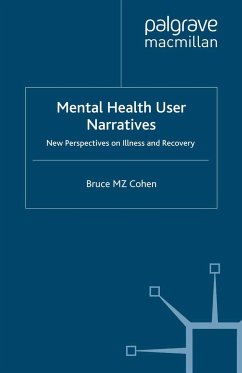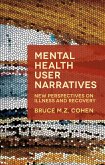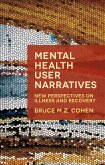Following extensive research in the UK, Bruce Cohen allows mental health users to tell their own stories (or 'narratives') of illness and recovery. Institutional and home treatment care is covered alongside controversial self-coping techniques such as drug-taking, spiritualism, alternative healing, sleep and watching television.
"Bruce Cohen offers innovative views about the value and impact of considering mental health services from users' perspectives." - British Journal of Psychology
"... very interesting, well researched and respectful of the service-user voice." - Psychiatric Bulletin
" an engaging critical study of the development and treatments of mental illnesses, which successfully demonstrates both the importance and relevance of social scientific approaches to the study of this area of medicine." - Medical Sociology Online
"In Mental Health User Narratives Cohen places the real experts on mental health problems centre stage. The subjective experience of people who use mental health services has been largely ignored, by researchers and clinicians, for as long as the 'medical model' has been dominant. This book provides a refreshing antidote to the bizarre notion that we can understand people's emotional pain by counting 'symptoms' and applying a diagnostic label. This is a must read for all involved in mental health services and research." -Professor John Read, University of Liverpool
"... very interesting, well researched and respectful of the service-user voice." - Psychiatric Bulletin
" an engaging critical study of the development and treatments of mental illnesses, which successfully demonstrates both the importance and relevance of social scientific approaches to the study of this area of medicine." - Medical Sociology Online
"In Mental Health User Narratives Cohen places the real experts on mental health problems centre stage. The subjective experience of people who use mental health services has been largely ignored, by researchers and clinicians, for as long as the 'medical model' has been dominant. This book provides a refreshing antidote to the bizarre notion that we can understand people's emotional pain by counting 'symptoms' and applying a diagnostic label. This is a must read for all involved in mental health services and research." -Professor John Read, University of Liverpool









